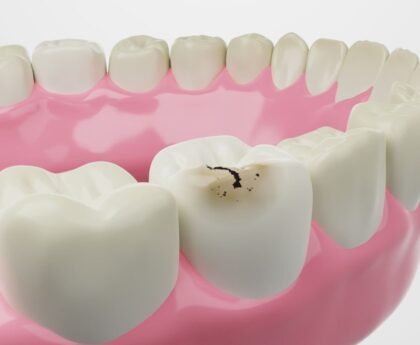Introduction to Ulcuprazol
Ulcuprazol is a medication commonly prescribed to treat various gastrointestinal conditions. Understanding what Ulcuprazol is, how it works, and its history can provide insights into its effectiveness and appropriate usage.
What is Ulcuprazol?
Ulcuprazol belongs to a class of medications known as proton pump inhibitors (PPIs). It works by reducing the production of acid in the stomach, thereby alleviating symptoms associated with conditions such as gastric ulcers, acid reflux, and heartburn.
How does Ulcuprazol work?
Ulcuprazol works by inhibiting the proton pump in the stomach’s lining, which is responsible for producing gastric acid. By blocking this pump, Ulcuprazol reduces the amount of acid produced, leading to a decrease in symptoms associated with excessive stomach acid.
History of Ulcuprazol
Ulcuprazol was first introduced in the medical market in the late 1980s. Since then, it has become one of the most commonly prescribed medications for treating gastric ulcers and related conditions.
Benefits of Ulcuprazol
Ulcuprazol offers several benefits in managing gastrointestinal issues, making it a preferred choice for many patients.
Treating gastric ulcers
One of the primary benefits of Ulcuprazol is its effectiveness in treating gastric ulcers. By reducing stomach acid production, Ulcuprazol helps in healing and preventing the recurrence of ulcers.
Managing acid reflux
Ulcuprazol is also effective in managing acid reflux, a condition characterized by the regurgitation of stomach acid into the esophagus. By decreasing acid production, Ulcuprazol alleviates symptoms such as heartburn and chest discomfort.
Preventing heartburn
Heartburn, a burning sensation in the chest caused by stomach acid refluxing into the esophagus, can be effectively prevented with Ulcuprazol. Its ability to reduce acid production helps in minimizing the occurrence of heartburn episodes.
Side Effects of Ulcuprazol
While Ulcuprazol offers significant therapeutic benefits, it may also cause side effects in some individuals. Understanding these side effects is essential for safe and effective medication use.
Common side effects
Common side effects of Ulcuprazol include headache, nausea, diarrhea, and abdominal pain. These side effects are usually mild and resolve on their own with continued use.
Serious side effects
In rare cases, Ulcuprazol may cause serious side effects such as allergic reactions, severe skin reactions, and an increased risk of bone fractures. It’s important to seek medical attention if any severe side effects occur.
Dosage and Administration
Proper dosage and administration of Ulcuprazol are crucial for achieving optimal therapeutic outcomes while minimizing the risk of side effects.
Recommended dosage
The recommended dosage of Ulcuprazol varies depending on the condition being treated and the individual’s medical history. It is typically taken once daily, preferably in the morning before a meal.
How to take Ulcuprazol
Ulcuprazol should be taken orally, swallowed whole with a glass of water. It should not be crushed or chewed. For best results, it should be taken at the same time each day to maintain consistent drug levels in the body.
Precautions and Warnings
Certain precautions and warnings should be considered before using Ulcuprazol to ensure safe and effective treatment.
Drug interactions
Ulcuprazol may interact with other medications, potentially affecting their efficacy or increasing the risk of side effects. It’s essential to inform your healthcare provider about all the medications you are currently taking to avoid any potential drug interactions.
Precautions for special populations
Special precautions should be taken when prescribing Ulcuprazol to certain populations, such as pregnant or breastfeeding women, elderly individuals, and those with underlying medical conditions. It’s important to discuss the risks and benefits of Ulcuprazol with a healthcare provider before starting treatment.
Alternatives to Ulcuprazol
While Ulcuprazol is highly effective for many individuals, there are alternative treatment options available for managing gastrointestinal conditions.
Other proton pump inhibitors
Several other proton pump inhibitors, such as omeprazole and lansoprazole, are available as alternatives to Ulcuprazol. These medications work similarly to Ulcuprazol and may be prescribed based on individual preferences or specific medical needs.
Natural remedies for digestive issues
In addition to pharmaceutical options, some individuals may prefer natural remedies for managing digestive issues. These may include dietary changes, herbal supplements, and lifestyle modifications. However, it’s essential to consult with a healthcare provider before trying any alternative treatments.
Conclusion
Ulcuprazol is a widely used medication for treating gastric ulcers, acid reflux, and heartburn. Understanding its benefits, side effects, dosage, and precautions is essential for safe and effective use. By following proper medical guidance and monitoring, individuals can effectively manage gastrointestinal conditions with Ulcuprazol.
FAQs (Frequently Asked Questions)
1. Is Ulcuprazol safe for long-term use?
Yes, Ulcuprazol is generally safe for long-term use under the supervision of a healthcare provider. However, it’s essential to monitor for any potential side effects and discuss any concerns with your doctor.
2. Can Ulcuprazol be taken with other medications?
Ulcuprazol may interact with certain medications, so it’s important to consult with a healthcare provider before taking it with other drugs. Your doctor can help determine if any adjustments to your medication regimen are necessary.
3. How quickly does Ulcuprazol work?
Ulcuprazol typically starts working within a few days of starting treatment. However, it may take up to several weeks to experience the full therapeutic effects. It’s important to continue taking Ulcuprazol as prescribed, even if symptoms improve.
4. Are there any dietary restrictions while taking Ulcuprazol?
There are no specific dietary restrictions associated with Ulcuprazol. However, avoiding trigger

![Auractive: Revolutionizing [Industry/Niche]](https://nynews.uk/wp-content/uploads/2024/05/teenage-girl-with-glasses-reads-her-school-reading-with-interest_357949-1258-150x150.jpg)
![Exploring the Fascinating World of [02131953663]: An In-Depth Analysis](https://nynews.uk/wp-content/uploads/2024/05/computer-generated-image-futuristic-background-with-lot-electronic-components_218381-23984-150x150.jpg)

